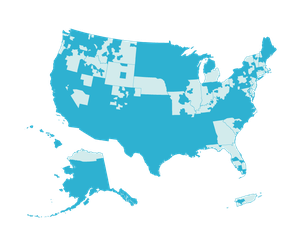Implementing Problem Analysis in Small and Rural Locations
This resource is part of a knowledge-sharing series for the Rural Violent Crime Reduction Initiative (RVCRI) led by LISC Safety & Justice, National Policing Institute, and the U.S. Department of Justice (DOJ), Bureau of Justice Assistance (BJA). RVCRI provides resources to small, rural, and tribal jurisdictions seeking to address specific crime concerns. RVCRI funded sites utilize a multi-disciplinary team to identify and prioritize specific crime challenges along with specific places and/or populations to direct grant resources.
Overview
The Rural Violent Crime Reduction Initiative (RVCRI) provides resources to rural and tribal jurisdictions seeking to address specific crime problems. RVCRI-funded sites utilize a multi-disciplinary team to identify and prioritize crime challenges and specific places and populations to direct grant resources. While unique to each site, crime reduction approaches include a mix of evidence-based and evidence-informed strategies. This discussion, which serves as a follow-up to Julie’s introductory Problem Solving & the SARA Model knowledge sharing event for the RVCRI program, provides an opportunity to hear directly from two RVCRI grantees on the problem solving efforts underway in their respective jurisdictions. Julie also discusses the unique challenges facing rural communities and provides additional resources to consider for those interested in continuing their problem-solving projects.
Presenters
- Chief Steven Lowell, Oneida (NY) Police Department
- Chief Joseph Stanford, Ashland (AL) Police Department
Moderator
- Julie Wartell, Problem Analysis Group
